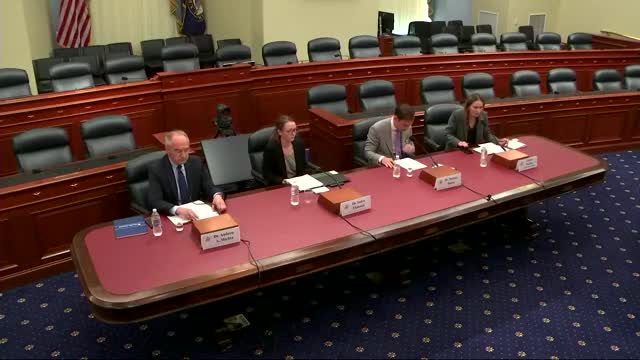Frontline nations warn of escalating Russian aggression
October 24, 2024 | Commission on Security and Cooperation in Europe (U.S. Helsinki Commission): House Commission, Commissions and Caucuses - House and Senate, Congressional Hearings Compilation
This article was created by AI summarizing key points discussed. AI makes mistakes, so for full details and context, please refer to the video of the full meeting. Please report any errors so we can fix them. Report an error »

In a recent government meeting, experts highlighted the ongoing threat posed by Russian aggression to European security, particularly emphasizing the experiences of the Visegrad 4 and Baltic states. These nations, having endured decades of oppression under Russian imperialism, are now on the front lines of Moscow's hybrid warfare tactics, which include cyber attacks, disinformation campaigns, and violations of airspace. The meeting underscored the importance of these countries as an early warning system for Europe, as they continue to alert the international community about the dangers posed by Russia.
The discussions were framed against the backdrop of Russia's ongoing war in Ukraine, with panelists stressing the need for a robust response to counteract Russian influence. Delibor Rochach, a senior fellow at the American Enterprise Institute, pointed out that Russia is making incremental gains in Ukraine, which could lead to a significant strategic advantage if not addressed. He also noted the alarming trend of accommodating Russia, warning that such actions could embolden President Putin.
Rochach further criticized the current state of allied military resources, suggesting that despite increased defense budgets, NATO forces remain underprepared for potential global conflict. He called for urgent action to establish deterrence and prevent further escalation of hostilities in Europe.
The meeting also served as a reminder of historical events, with Rochach referencing the Hungarian Revolution of 1956 as a poignant example of resistance against Soviet domination. He urged Western policymakers to heed the warnings of Eastern European leaders who have long understood the implications of Russian aggression.
As the meeting concluded, the panelists expressed a collective desire for the United States to deepen its support for frontline states, reinforcing regional security and countering Russian influence in the long term. The discussions highlighted the critical need for a unified and proactive approach to ensure the stability of Europe in the face of ongoing threats.
The discussions were framed against the backdrop of Russia's ongoing war in Ukraine, with panelists stressing the need for a robust response to counteract Russian influence. Delibor Rochach, a senior fellow at the American Enterprise Institute, pointed out that Russia is making incremental gains in Ukraine, which could lead to a significant strategic advantage if not addressed. He also noted the alarming trend of accommodating Russia, warning that such actions could embolden President Putin.
Rochach further criticized the current state of allied military resources, suggesting that despite increased defense budgets, NATO forces remain underprepared for potential global conflict. He called for urgent action to establish deterrence and prevent further escalation of hostilities in Europe.
The meeting also served as a reminder of historical events, with Rochach referencing the Hungarian Revolution of 1956 as a poignant example of resistance against Soviet domination. He urged Western policymakers to heed the warnings of Eastern European leaders who have long understood the implications of Russian aggression.
As the meeting concluded, the panelists expressed a collective desire for the United States to deepen its support for frontline states, reinforcing regional security and countering Russian influence in the long term. The discussions highlighted the critical need for a unified and proactive approach to ensure the stability of Europe in the face of ongoing threats.
View full meeting
This article is based on a recent meeting—watch the full video and explore the complete transcript for deeper insights into the discussion.
View full meeting